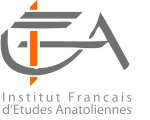Séminaire « Sciences et savoirs dans l’Empire ottoman »
Jeudi 11 févirer 2016 à 18h à l’IFEA
Philippe Bourmaud (IFEA)
« Learning and teaching medical sciences between Ottoman reforms and Arab cultural renaissance : Dr Shakir al-Khoury (1847-1911) and his autobiography »
Intervention en anglais
The intellectual dynamics of the Tanzimat (Ottoman reforms) and Nahda (Arab cultural renaissance) that unfold over the nineteenth century have often been paralleled, nearly conflated into one modernizing trend. In many ways, the two movements had cumulative effects, encouraging the emergence of an educated class with a blend of cultural pride and fascination for the West, and an appetite for scientific novelty. It could be said, however, that the two movements, without actually competing ideologically the way Turkish and Arab nationalisms would in a later period, stressed different aspects of modernization, namely social engineering and identity politics respectively. The case of Dr Shaker al-Khoury illustrates these overlapping dynamics. A son of Mount Lebanon, he grew up, just ahead of the 1860 interdenominational conflict, to become a physician and a long-time professor at the French Medical Faculty founded by the Jesuits in Beirut. Where can we trace in his autobiography – in itself, a text typical of Ottoman modernity – the influence of the Tanzimat on the one side, of the Nahda on the other?
